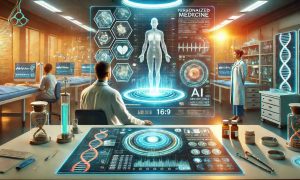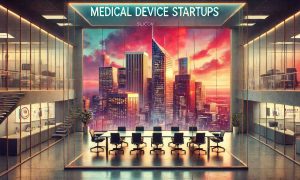

Introduction
In recent years, the integration of Internet of Things (IoT) devices in healthcare has revolutionized the medical industry, offering unprecedented opportunities for improving patient care, enhancing operational efficiency, and transforming the medical device market. With the ability to collect, transmit, and analyze vast amounts of patient data in real-time, IoT devices are reshaping the way medical devices are designed, manufactured, and utilized. This article explores the profound impact of IoT devices on the medical device market, highlighting their potential to drive innovation, improve patient outcomes, and shape the future of healthcare.
Enhanced Remote Patient Monitoring
One of the most significant contributions of IoT devices to the medical device market is the advancement of remote patient monitoring capabilities. With IoT-enabled medical devices such as wearable sensors, smart implants, and remote monitoring systems, healthcare providers can remotely track vital signs, monitor patient health metrics, and intervene promptly in case of any anomalies. This shift towards remote monitoring not only empowers patients to take greater control of their health but also reduces the need for frequent hospital visits, leading to cost savings for both patients and healthcare providers.
Improved Treatment Personalization
IoT devices are facilitating a shift towards personalized medicine by providing healthcare professionals with real-time access to patient data and insights. Through continuous monitoring and data analysis, IoT-enabled medical devices can generate personalized treatment plans tailored to each patient’s unique needs and characteristics. Whether it’s adjusting medication dosages, optimizing therapy regimens, or predicting disease progression, IoT devices empower healthcare providers to deliver more precise and effective treatments, ultimately improving patient outcomes and quality of life.
Streamlined Healthcare Operations
In addition to enhancing patient care, IoT devices are streamlining healthcare operations and driving efficiency across the entire medical device ecosystem. From inventory management and equipment maintenance to workflow optimization and resource allocation, IoT-enabled solutions are revolutionizing the way healthcare facilities operate. By leveraging real-time data analytics and predictive maintenance algorithms, hospitals and clinics can optimize their supply chains, minimize downtime, and ensure that medical devices are always available when needed, thereby enhancing overall productivity and reducing costs.
Facilitating Data-Driven Insights
The proliferation of IoT devices in healthcare is generating vast amounts of data that hold valuable insights for medical device manufacturers, researchers, and healthcare providers. By harnessing the power of big data analytics and machine learning algorithms, stakeholders can gain deeper insights into patient demographics, treatment efficacy, disease trends, and healthcare outcomes. This data-driven approach not only facilitates evidence-based decision-making but also fuels innovation in medical device design and development. By understanding the evolving needs of healthcare providers and patients, manufacturers can design smarter, more intuitive devices that address specific pain points and deliver superior performance.
Ensuring Data Security and Privacy
While the widespread adoption of IoT devices promises numerous benefits for the medical device market, it also raises concerns about data security and privacy. With sensitive patient information being transmitted over networked devices, ensuring robust cybersecurity measures is paramount to safeguarding patient confidentiality and preventing unauthorized access. Medical device manufacturers must prioritize cybersecurity in their product design and implementation, incorporating encryption protocols, access controls, and secure communication channels to protect patient data from cyber threats and breaches. Additionally, regulatory bodies and industry standards play a crucial role in establishing guidelines and frameworks for securing IoT devices and safeguarding patient privacy.
Conclusion
In conclusion, the integration of IoT devices in healthcare is transforming the medical device market in profound ways, driving innovation, enhancing patient care, and reshaping industry dynamics. From enhanced remote patient monitoring and personalized treatments to streamlined healthcare operations and data-driven insights, IoT devices are revolutionizing every aspect of the healthcare ecosystem. However, as the adoption of IoT devices continues to accelerate, it is imperative for stakeholders to address challenges related to data security, privacy, and regulatory compliance. By harnessing the full potential of IoT technology while mitigating associated risks, the medical device market can unlock new opportunities for improving patient outcomes and advancing the future of healthcare













